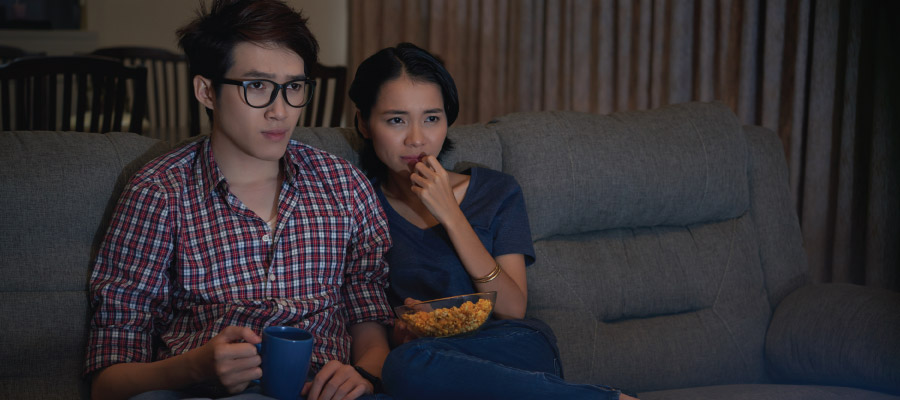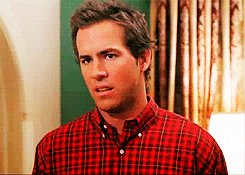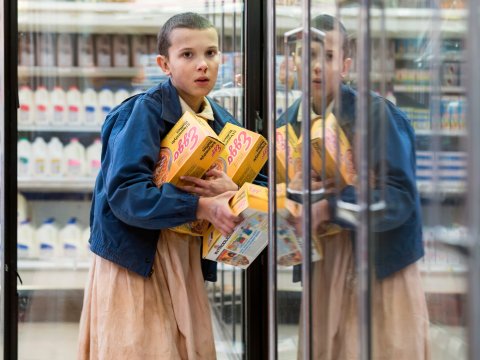
How Binge Watching Helps You Live a Better Life
Have you ever sat down on the couch to watch a show or two and, somehow, found yourself on the tail end of a 5-hour Netflix marathon? It’s ok. You can be honest. We’ve all been there. In fact, the popular video-on-demand service says 61% of their viewers do it regularly.
Even though marathon watching is an increasingly standard way to consume media in our now current digital world, something about it still feels dirty to most people. Consider the word we often use to describe it: binging. That’s hardly a term of endearment or social approval.
We want to turn that negative connotation on its head. Your next Netflix session doesn’t have to be a mindless binge. In fact, we think binging a great show can be a good thing, and we’re going to show you why.
Shift Our Thinking
Most dictionaries define ‘binging’ as over-consumption, usually of alcohol and junk food. In broader sociological terms, it can apply to pretty much anything—including TV watching. We think it’s important to distinguish between passive binging and active binging.
Here’s what passive binging looks like:
Shut Down – When you plop down on the couch, you tell your brain to take the next couple hours off.
Mindless Consumption – With your brain out to lunch, binging TV shows becomes passive eye candy. You’re there, but you’re not really there.
Addictive Behavior – Passive binging looks a lot more like getting a fix than enjoying a good story.
Hey, it’s been a long week. I just need to sit down, shut down, and unwind.
Amen, and there’s nothing wrong with that. After a long a week, sometimes the best thing for you to do may be to shut down and zone out with a few episodes of Parks and Recreation.
Still, that doesn’t always have to be the case. With a few slight adjustments, you can transform your next marathon session into a richer experience and three real-life benefits.
First, start by adopting these two simple habits when watching:
Immerse Yourself in Stories – Consider how each of the character’s story fits into the larger whole. Think about the broader cultural stories against which they’re set. No matter the show, there’s a narrative, and you goal is to understand why.
Actively Consume – Pay a little more attention than you normally would. Pick up visual details, listen carefully to dialogue, analyze body language, think about production values, etc. These are clues to a new benefit.
That sounds like a lot of work to do on my couch. What am I really getting out of this?
That sounds like a lot of work to do on my couch. What am I really getting out of this?

We get it. We’re not at all suggesting you bring a notebook into your living room and treat your next marathon session like a university lecture.
Treat this more like a call to wake up or a habit of active consumption—a set of attitudes you can bring with you to get more out of something you’re already doing. If you do, here are three positive benefits you can expect:
Learn to Focus Again
It seems modern life has wired us all for distraction. With our smartphones constantly in reach, we perpetually juggle multiple streams of content both at home and at work. It’s getting harder and harder to focus on any particular thing for more than just a few moments. We’re also leaning, multitasking doesn’t really work as well as we thought.
Ironically, the occasional Netflix marathon may help us with our focus problem. When we actively consume back-to-back episodes of a single show, we force ourselves to focus on a single object for hours on end.
Where else do we so regularly devote hours of our undivided attention? Let us know when you come up with an answer…
Strange as it may sound, ‘vegging out’ in front of the TV just might help us get our focus back. And if you can do it here, try expanding this new practice to something else. Hint: put your phone in another room.
Deeper Understanding of Stories in the Real World
Human beings are deeply storied creatures. We’ve each had experiences that have profoundly shaped our interaction with the world. We know where we’ve been and, at least in a vague sense, we know where we’re going in life. Everyone you meet today has a unique story to tell.
Focused attention on a single narrative arc will make you a better reader of other people’s stories. Spend a couple of days with Frank Underwood (House of Cards), and you’ll learn something about the psychology of political opportunism and the kinds of stories that fire it.
Balance that out with a few weeks of the West Wing and let it teach you about what drives good-willed people to pour themselves out for the sake of a greater cause.
We could multiply examples of shows with deep, complex characters all working to advance a single, compelling story. The point is, taking the time to immerse yourself in those stories fully will help you to receive and process the stories you encounter every day in the real world.
Broader Cultural Exposure
People used to read novels (many still do) to expose themselves to people and circumstances they would otherwise never encounter. TV shows give us the same kind of broad exposure.
As denizens of the 21st century, we’ll never truly know what it was like to live in England during the early twentieth century. A long stretch of Downton Abbey can help us appreciate not only how life was back then, but how western class distinctions have developed from then till now.
In the same way, The Wonder Years can teach us what it was like to come of age in suburban America during the 70’s. A show like Modern Family, though set in our own time (and culture for some of us), can show us an increasingly common family dynamic that may still be new to many of us.
Or take Dear White People. This show shares perspectives many people may not experience or understand, pushing boundaries and knowledge into homes others may not reach.
Whatever the show or its setting, long stretches of active immersion will give you a deeper understanding of cultures outside your own bubble. When you meet people from similar cultures out in the real world, you’ll be much better prepared to relate.
Make it What You Want
Not every Netflix binge needs to be a mindless trip down the digital rabbit hole. With a few simple adjustments, your next marathon session can help you learn to focus better on the stories, characters, and cultures that make up the everyday world in which we live.
So, before you to plop yourself down for a brain vacation with a long stretch of Stranger Things, and a box of waffles, think about these things. You just might turn that late-night binge into a catalyst for meaningful life change.

Netflix
We’d love to know what you’ve learned while binging on Netflix (or your other favorite streaming service). Leave us a comment below.

